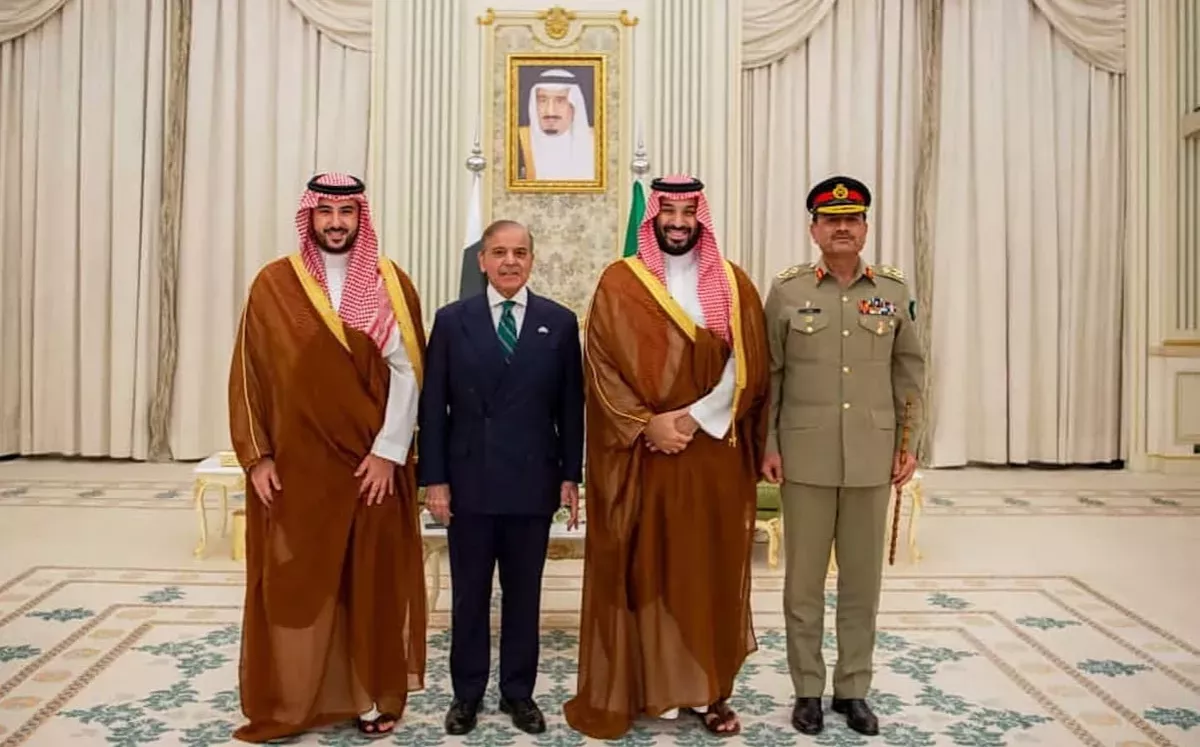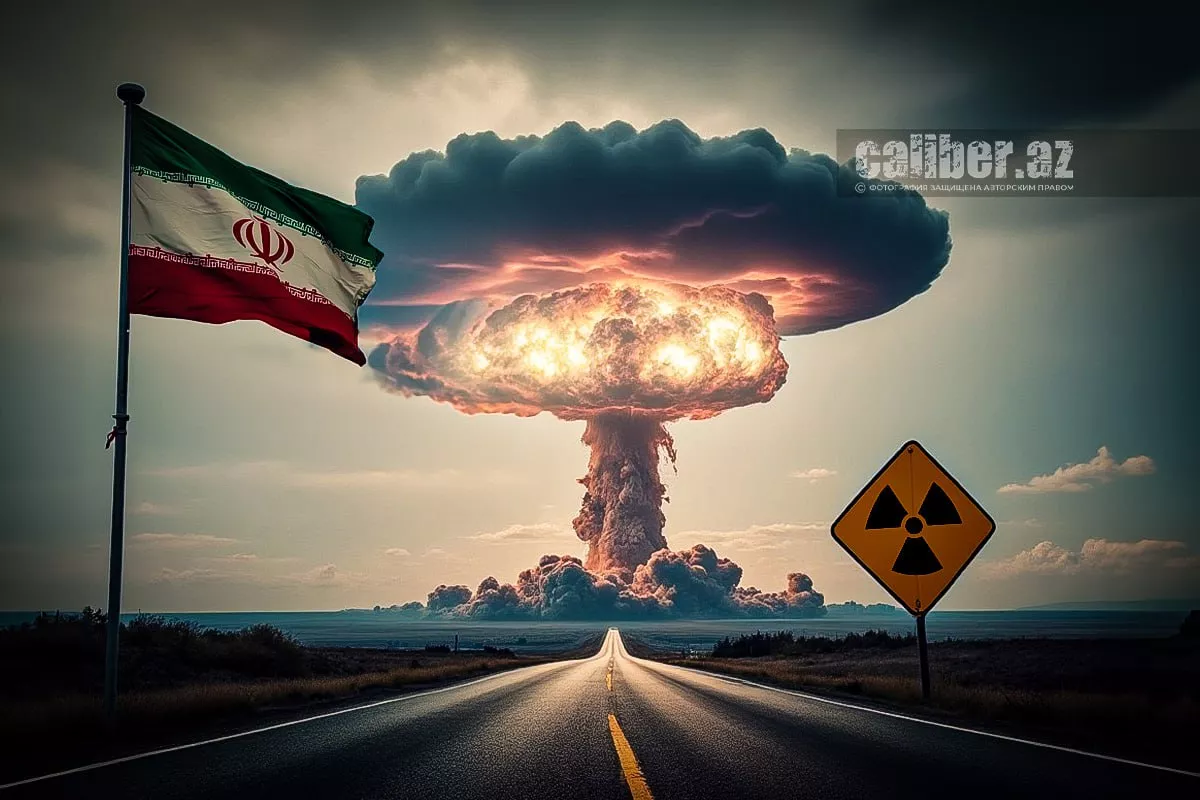“Nuclear umbrella” and oil shield Riyadh-Islamabad alliance signals new global balance
During a state visit to Riyadh on 17 September, Pakistan’s Prime Minister Shehbaz Sharif and Saudi Arabia signed a “Strategic Mutual Defense Agreement”, which states that “any aggression against either country shall be considered an aggression against both.”
Apparently, this document had been in preparation for some time. Back in November 2024, Pakistan Army Chief of Staff (COAS) General Asim Munir visited Saudi Arabia to discuss “ways to further strengthen defence cooperation.” He then returned to Riyadh in June of this year, and again in September 2025 for the signing of the above-mentioned pact.
“This agreement, which reflects the shared commitment of both nations to enhance their security and to achieving security and peace in the region and the world, aims to develop aspects of defense cooperation between the two countries and strengthen joint deterrence against any aggression,” reads a joint statement from the parties.
The mutual defence agreement between Saudi Arabia and Pakistan carries significant weight for the Middle East and Asia and marks a major shift in the global balance of power. In this geopolitical partnership, the parties complement each other: Saudi Arabia, the leader of the Arab world, is set to become Islamabad’s largest foreign creditor in the 2025–2026 fiscal year, with loans and deposits exceeding $6 billion. Meanwhile, Pakistan, a nuclear-armed state, theoretically has the capability to extend its “nuclear umbrella” over the kingdom.

For Saudi Arabia, the mutual defence agreement forms part of its diversification strategy, including in the field of defence. By signing the pact, Saudi Arabia restores its defence and deterrence framework vis-à-vis Iran, following attacks carried out by pro-Iranian forces on Saudi Aramco facilities in Abqaiq and Khurais (2019), and the recent attack on the U.S. Al-Udeid base in Qatar (June 2025).
For Pakistan, this deal opens both new opportunities and risks. Islamabad has gained prominence as the only Muslim-majority nuclear state and a long-standing security partner of Riyadh. The agreement strengthens its position as a key player in Islamic geopolitics and secures critically important financial ties with Riyadh during a period of economic instability.
However, on the other hand, it could lead to friction with Washington and New Delhi, which are increasingly concerned about Pakistan’s nuclear and missile programmes. Balancing on a “geopolitical tightrope” between China, Iran, Saudi Arabia, and the U.S., as retired Pakistani officials warn, may become a complex task, and the deal—intended to elevate Pakistan’s status—could turn into an extra headache.
Foreign observers immediately asked: “Will Saudi Arabia gain access to Pakistan’s nuclear weapons?” A senior Saudi official responded to Reuters: “This is a comprehensive defensive agreement that encompasses all military means.”
Notably, since 1998, Pakistan has produced around 170 nuclear warheads, which can be delivered by aircraft, ballistic missiles, and cruise missiles.
Saudi Arabia itself also has nuclear ambitions. In 2018, Crown Prince Mohammed stated in an interview with 60 Minutes: “Saudi Arabia does not want to acquire any nuclear bomb, but without a doubt if Iran developed a nuclear bomb, we will follow suit as soon as possible.” In 2022, the kingdom’s Foreign Minister said at a conference in Dubai: “If Iran obtains operational nuclear weapons, all restrictions will be lifted.”
Although Iran’s nuclear programme was severely affected by U.S. and Israeli bombings in June 2025, the West remains concerned about the location of Iranian uranium stocks, much of which had been enriched nearly to weapons-grade levels.

Saudi Arabia is reportedly planning to build a uranium enrichment plant using centrifuges and is currently limiting access for inspectors from the International Atomic Energy Agency (IAEA). As early as 1988, the kingdom acquired long-range Dongfeng-3 missiles from China, capable of carrying a nuclear warhead. U.S. officials only became aware of the deal when the missiles were spotted on trucks being transported to launch sites in the Saudi desert.
Senior Western officials also note that the kingdom collaborated with Abdul Qadeer Khan, the late Pakistani nuclear scientist and proliferator, who sold centrifuge equipment to Iran, Libya, and North Korea. This fact was long carefully concealed. In 1999, then-Saudi Defence Minister Prince Sultan visited Pakistan’s uranium enrichment facility in Kahuta.
IAEA Director General Rafael Grossi, in turn, highlighted the scale of the problem on 15 September 2025, saying that even in some countries that faithfully fulfil their obligations under the Non-Proliferation Treaty, there are now open discussions about whether to develop nuclear weapons. “Think for a minute about a world where instead of a few, we would have 20 or 25 countries armed with nuclear weapons,” he warned.
The current Pakistan–Saudi Arabia agreement already has three direct implications. First, it further strengthens security in the Persian Gulf and Asia, enhancing strategic interdependence. Second, it introduces a new player into the security sphere—Pakistan, the only Muslim-majority nuclear state—into the evolving security landscape of the Persian Gulf, officially bringing a South Asian country onto this geopolitical chessboard. Third, it draws Riyadh into geopolitical disputes in South Asia, ranging from Pakistan’s border conflicts with India and Iran to issues in Afghanistan.
The agreement has raised concerns in India, which has been gradually improving its relations with Riyadh in recent years. New Delhi views the deal as a potential threat to projects such as the India–Middle East–Europe Economic Corridor (IMEC), launched during the G20 summit in 2023 in New Delhi.
At the same time, China benefits from the closer ties between its two partners. As Sun Degan, Director of the Middle East Studies Center at Fudan University (Shanghai), stated: “China welcomes their enhanced defence cooperation rather than putting all its eggs in one basket, namely the US. Seeking strategic autonomy with diverse partners is also in China’s interests.”
The mutual defence agreement between Saudi Arabia and Pakistan marks an important stage not only in maintaining the balance of power in security matters in the Persian Gulf and Asia, but also in the global influence competition between the U.S. and China. This agreement could very well be followed by other mutual defence pacts between countries in the Middle East and Asia, as, against the backdrop of ongoing Israeli military campaigns—and now to balance Riyadh and Islamabad—some Middle Eastern states may feel an urgent need to establish formal alliance systems.








